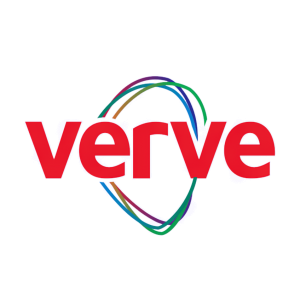Verve Therapeutics Announces Updates on its PCSK9 Program
Heart-1 clinical trial demonstrated LDL-C reduction of up to
Company to pause enrollment in Heart-1 clinical trial following asymptomatic Grade 3 transient ALT elevation and thrombocytopenia seen in the sixth participant enrolled in 0.45 mg/kg dose cohort
Verve to prioritize development of VERVE-102, which uses a different LNP delivery system than VERVE-101; Clinical Trial Applications have been cleared by the U.K. MHRA and Health Canada; initiation of Heart-2 clinical trial of VERVE-102 is expected in 2Q 2024, consistent with existing PCSK9 program guidance
Cash runway remains into late 2026
BOSTON, April 02, 2024 (GLOBE NEWSWIRE) -- Verve Therapeutics, a clinical-stage biotechnology company pioneering a new approach to the care of cardiovascular disease with single-course gene editing medicines, today announced updates from the Heart-1 Phase 1b clinical trial of VERVE-101 and clearance of its Clinical Trial Applications (CTAs) by the U.K. Medicines and Healthcare products Regulatory Agency (MHRA) and Health Canada for VERVE-102, with the Heart-2 Phase 1b clinical trial expected to initiate in the second quarter of this year.
VERVE-101 is being evaluated in the Heart-1 Phase 1b clinical trial with trial endpoints of safety and tolerability as well as changes in blood PCSK9 protein and low-density lipoprotein cholesterol (LDL-C) levels in patients living with heterozygous familial hypercholesterolemia (HeFH), established atherosclerotic cardiovascular disease (ASCVD), and uncontrolled hypercholesterolemia. Six participants have been dosed at 0.45 mg/kg of VERVE-101, with a total of 13 participants dosed in the study. For the first five participants in the 0.45 mg/kg cohort with follow-up to at least 28 days, VERVE-101 demonstrated time-averaged LDL-C reductions ranging from
However, the sixth participant treated in the 0.45 mg/kg cohort experienced a Grade 3 drug-induced transient increase in serum alanine aminotransferase (ALT) as well as a serious adverse event of Grade 3 drug-induced thrombocytopenia within the first four days after dosing. The participant did not experience any bleeding or other symptoms related to the laboratory abnormalities, and the abnormalities resolved fully within a few days.
In light of such observed laboratory abnormalities associated with VERVE-101, Verve, in consultation with the study’s independent data and safety monitoring board (DSMB), has decided to pause enrollment in the Heart-1 clinical trial. Verve is conducting an investigation into the laboratory abnormalities and based on those results, expects to work with regulatory authorities to define a path forward for VERVE-101. These safety events were reported to the U.S. Food and Drug Administration (FDA), MHRA, and the New Zealand Medicines and Medical Devices Safety Authority (Medsafe). The VERVE-101 Investigational New Drug Application (IND) and other CTAs remain active.
Verve is now prioritizing the development of VERVE-102 and the initiation of the Heart-2 clinical trial. VERVE-102 uses the same base editor and guide RNA for PCSK9 but a different lipid nanoparticle (LNP) delivery system than VERVE-101. VERVE-102 has two principal differences from VERVE-101. First, VERVE-102 includes a different ionizable lipid from VERVE-101. VERVE-102’s ionizable lipid has already been used in third-party clinical trials of gene editing product candidates and has been well-tolerated in these trials. Second, the incorporation of GalNAc allows the LNP in VERVE-102 to access liver cells using either the asialoglycoprotein receptor (ASGPR) or the low-density lipoprotein receptor (LDLR). Verve has received regulatory clearances for the Heart-2 clinical trial in the U.K. and Canada and plans to initiate the Heart-2 clinical trial in patients with HeFH or premature coronary artery disease in the second quarter of 2024.
“The Heart-1 clinical trial continues to support proof-of-concept for in vivo base editing of the PCSK9 gene in the liver, with a meaningful and durable lowering of LDL-C,” said Sekar Kathiresan, M.D., co-founder and chief executive officer of Verve. “However, at potentially therapeutic dose levels of VERVE-101, we have observed certain asymptomatic laboratory abnormalities, which we believe are attributable to the LNP delivery system. The safety of patients in our clinical trials is of the utmost importance. We plan to further investigate the laboratory abnormalities observed in the Heart-1 clinical trial in order to inform the next steps for VERVE-101. At this time, we are prioritizing the initiation of the Heart-2 clinical trial of VERVE-102 due to its proximity to the clinic and its use of a different LNP that incorporates an ionizable lipid which has been well-tolerated in third-party clinical trials. We are grateful to our study participants and to our investigators, who share our belief in the promise of single-course gene editing medicines for the treatment of cardiovascular disease. We look forward to initiating the Heart-2 clinical trial in the second quarter of this year.”
About VERVE-101
VERVE-101 is a novel, investigational gene editing medicine designed to be a single course treatment that permanently turns off the PCSK9 gene in the liver to reduce disease-driving low-density lipoprotein cholesterol (LDL-C). VERVE-101 is being developed initially as a treatment for patients with heterozygous familial hypercholesterolemia (HeFH), a prevalent and potentially life-threatening subtype of atherosclerotic cardiovascular disease (ASCVD). VERVE-101 consists of messenger RNA expressing an adenine base editor and an optimized guide RNA targeting the PCSK9 gene packaged in an engineered lipid nanoparticle.
About VERVE-102
VERVE-102 is a novel, investigational gene editing medicine designed to be a single course treatment that permanently turns off the PCSK9 gene in the liver to reduce disease-driving low-density lipoprotein cholesterol (LDL-C), similar to VERVE-101. VERVE-102 is being developed initially as a treatment for patients with heterozygous familial hypercholesterolemia (HeFH) or premature coronary artery disease (CAD). VERVE-102 consists of messenger RNA expressing an adenine base editor and an optimized guide RNA targeting the PCSK9 gene, identical to VERVE-101. However, VERVE-102 uses a different delivery system than VERVE-101, which includes a different ionizable lipid and Verve’s proprietary GalNAc liver-targeting ligand.
About Heart-1
Heart-1 is an open-label Phase 1b clinical trial designed to enroll adult patients with heterozygous familial hypercholesterolemia (HeFH), established atherosclerotic cardiovascular disease (ASCVD) and uncontrolled hypercholesterolemia to evaluate the safety and tolerability of VERVE-101 administration, with additional analyses for pharmacokinetics and changes in blood PCSK9 protein and low-density lipoprotein cholesterol (LDL-C) levels. The single ascending dose portion of the trial has consisted of four dose levels: 0.1 mg/kg [n=3], 0.3 mg/kg [n=3], 0.45 mg/kg [n=6], and 0.6 mg/kg [n=1].
About Heart-2
Heart-2 is an open-label Phase 1b clinical trial designed to enroll adult patients with heterozygous familial hypercholesterolemia (HeFH) or premature coronary artery disease (CAD) who require additional lowering of low-density lipoprotein cholesterol (LDL-C) to evaluate the safety and tolerability of VERVE-102 administration, with additional analyses for pharmacokinetics and changes in blood PCSK9 protein and LDL-C levels. Initiation of the Heart-2 clinical trial is expected in the second quarter of 2024.
About Verve Therapeutics
Verve Therapeutics, Inc. (Nasdaq: VERV) is a clinical-stage genetic medicines company pioneering a new approach to the care of cardiovascular disease, potentially transforming treatment from chronic management to single-course gene editing medicines. The company’s lead programs – VERVE-101, VERVE-102, and VERVE-201 – target genes that have been extensively validated as targets for lowering low-density lipoprotein cholesterol (LDL-C), a root cause of atherosclerotic cardiovascular disease (ASCVD). VERVE-101 and VERVE-102 are designed to permanently turn off the PCSK9 gene in the liver and are being developed initially for heterozygous familial hypercholesterolemia (HeFH) and ultimately to treat patients with established ASCVD who continue to be impacted by high LDL-C levels. VERVE-201 is designed to permanently turn off the ANGPTL3 gene in the liver and is initially being developed for homozygous familial hypercholesterolemia (HoFH) and for refractory hypercholesterolemia where patients still have high LDL-C despite treatment with maximally-tolerated standard of care therapies. For more information, please visit www.VerveTx.com.
Cautionary Note Regarding Forward Looking Statements
This press release contains “forward-looking statements” within the meaning of the Private Securities Litigation Reform Act of 1995 that involve substantial risks and uncertainties, including statements regarding expectations for the company’s Heart-1 clinical trial, including the company’s assessment of the laboratory abnormalities observed in the trial and the company’s interactions with regulatory authorities regarding VERVE-101; the expected timing of initiating the clinical trial of VERVE-102; and the potential advantages and therapeutic potential of the company’s PCSK9 program. All statements, other than statements of historical facts, contained in this press release, including statements regarding the company’s strategy, future operations, future financial position, prospects, plans and objectives of management, are forward-looking statements. The words “anticipate,” “believe,” “continue,” “could,” “estimate,” “expect,” “intend,” “may,” “plan,” “potential,” “predict,” “project,” “should,” “target,” “will,” “would” and similar expressions are intended to identify forward-looking statements, although not all forward-looking statements contain these identifying words. Any forward-looking statements are based on management’s current expectations of future events and are subject to a number of risks and uncertainties that could cause actual results to differ materially and adversely from those set forth in, or implied by, such forward-looking statements. These risks and uncertainties include, but are not limited to, risks associated with the company’s limited operating history; the company’s ability to timely submit and receive approvals of regulatory applications for its product candidates; advance its product candidates in clinical trials; initiate, enroll and complete its ongoing and future clinical trials on the timeline expected or at all; correctly estimate the potential patient population and/or market for the company’s product candidates; replicate in clinical trials positive results found in preclinical studies and/or earlier-stage clinical trials of VERVE-101, VERVE-102, and VERVE-201; advance the development of its product candidates under the timelines it anticipates in current and future clinical trials; obtain, maintain or protect intellectual property rights related to its product candidates; manage expenses; and raise the substantial additional capital needed to achieve its business objectives. For a discussion of other risks and uncertainties, and other important factors, any of which could cause the company’s actual results to differ from those contained in the forward-looking statements, see the “Risk Factors” section, as well as discussions of potential risks, uncertainties and other important factors, in the company’s most recent filings with the Securities and Exchange Commission and in other filings that the company makes with the Securities and Exchange Commission in the future. In addition, the forward-looking statements included in this press release represent the company’s views as of the date hereof and should not be relied upon as representing the company’s views as of any date subsequent to the date hereof. The company anticipates that subsequent events and developments will cause the company’s views to change. However, while the company may elect to update these forward-looking statements at some point in the future, the company specifically disclaims any obligation to do so.
Investor Contact
Jen Robinson
Verve Therapeutics, Inc.
jrobinson@vervetx.com
Media Contact
Ashlea Kosikowski
1AB
ashlea@1abmedia.com









